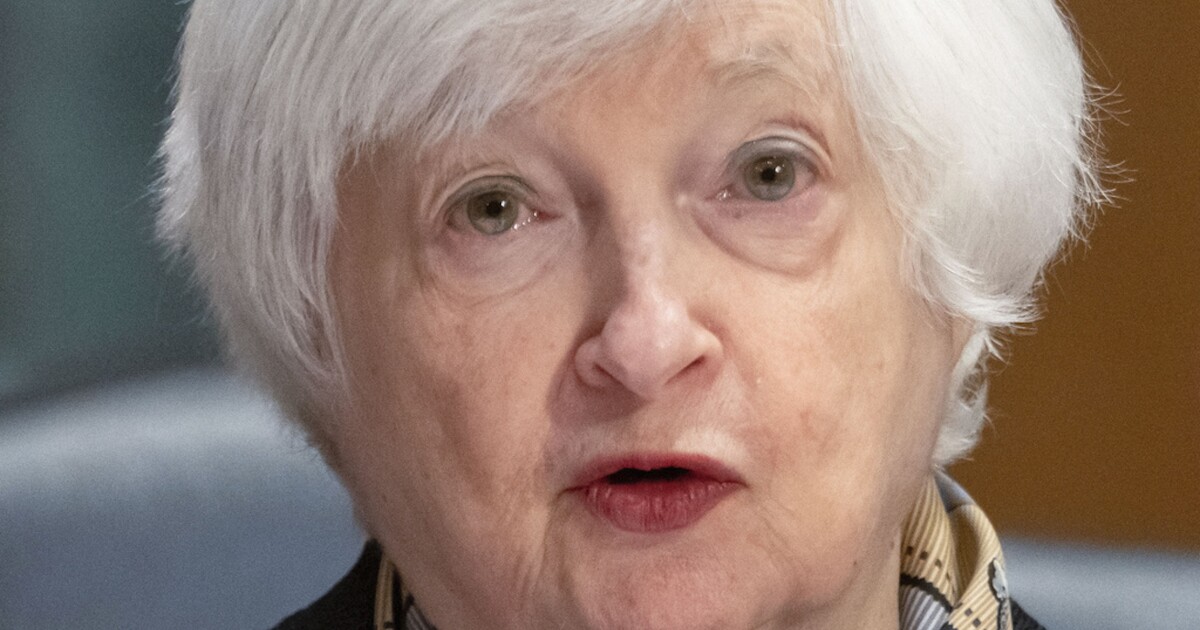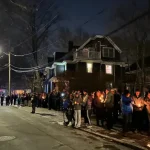

Small banks and some Republicans are hitting out at Treasury Secretary Janet Yellen over the federal government’s decision to insure deposits at “systemically risky” large banks.
Following Silicon Valley Bank’s sudden collapse, the federal government announced that it would back all deposits in the banks, even those in excess of the Federal Deposit Insurance Corporation’s $250,000 threshold, and the Federal Reserve rolled out a new source of funding for banks that might face runs by depositors, called the Bank Term Funding Program.
SVB COLLAPSE: FIRST REPUBLIC STOCK PLUNGES DESPITE RESCUE EFFORT BY BIG BANKS
Some have branded the move a bailout, although the administration says it wasn’t because the funds come from bank fees and not directly from the taxpayer, plus the banks were still allowed to fail. But some lawmakers fear how the move will be perceived by those using community banks and that smaller banks will end up shouldering the burden of the plan.
“Will the deposits in every community bank in Oklahoma, regardless of their size, be fully insured now?” Sen. James Lankford (R-OK) asked Yellen during a hearing on Capitol Hill this week. “Will they get the same treatment that SVB just got or Signature Bank just got?”
Yellen said the depositors of a bank will only get that treatment if the federal government determines “that the failure to protect uninsured depositors would create systemic risk and significant economic and financial consequences.”
Independent Community Bankers of America is also hitting out at Yellen. The ICBA represents thousands of small U.S. banks, known as community banks, across the country.
President and CEO Rebeca Romero Rainey condemned Yellen’s remarks that only depositors at systemically risky banks will be protected, framing it as “a bailout for big banks that rewards mismanagement and risky behavior to the detriment of community banks and the communities they serve.”
“Secretary Yellen’s statements that only the largest and riskiest institutions will be bailed out by regulators underscore what ICBA has long said: unlike too-big-to-fail institutions, community banks don’t need government bailouts because they operate under a safe, sound, and relationship-based banking model that has withstood economic cycles,” Rainey said.
During Yellen’s testimony, Lankford asked what specific plan she has for keeping large depositors from moving their funds out of smaller community banks into bigger banks.
He noted the mergers of banks over the past decade and said he is concerned that the administration will accelerate that by encouraging large depositors in community banks to gravitate toward the government’s “preferred banks.”
“Well, I mean, that’s certainly not something we’re encouraging,” Yellen responded, with Lankford replying that it is already happening.
Yellen also argued that in cases like SVB and Signature Bank, if the government didn’t make those depositors whole, it could lead to a meltdown in the financial sector, which would also harm community banks in Lankford’s state.
“If we have a collapse of the banking system, and its economic consequences, that will have very severe effects on banks in Oklahoma,” she said.
The 2008 bailouts were different in that Congress approved a rescue using taxpayer funds in the form of the Troubled Assets Relief Program and propped up big banks. Those bailouts made the banks whole, keeping investors and employees above water. These most recent moves, by contrast, still allowed investors to go to zero and removed the management teams of the banks.
Camden Fine, the CEO of Calvert Advisors and former head of ICBA, told the Washington Examiner this week that the government’s efforts did constitute a bailout. He also argued that the public will still foot some of the cost because the funds will come out of the FDIC deposit insurance fund, which is paid for by other banks.
“And now local Main Street community banks have to pick up the tab for bailing out these people and firms. And that cost will find its way to the consumer on the street. There is nothing for free here,” Fine said.
Rep. Blaine Luetkemeyer (R-MO), who sits on the House Financial Services Committee, suggested this week that the government should begin temporarily insuring every bank deposit in the country as a way to shore up confidence in the U.S. banking system. He said doing so would help smaller banks navigate the aftermath of SVB’s failure and build trust in the U.S. financial system.
“If you don’t do this, there’s going to be a run on your smaller banks,” Luetkemeyer told Politico. “Everyone’s going to take their money out and run to the JPMorgan’s and these too-big-to-fail banks, and they’re going to get bigger, and everybody else is going to get smaller and weaker, and it’s going to really be bad for our system.”
CLICK HERE TO READ MORE FROM THE WASHINGTON EXAMINER
Markets have been roiled by SVB’s collapse and subsequent uncertainty. The Dow Jones Industrial Average closed down nearly 400 points on Friday after a wild week of ups and downs.
SVB’s parent company filed for bankruptcy on Friday, exactly a week after the federal government announced the bank had failed.





